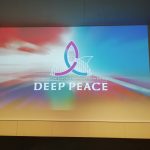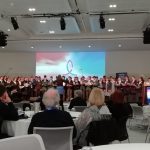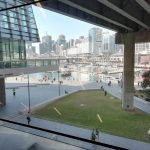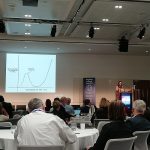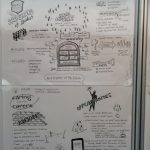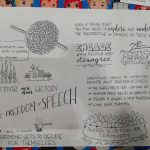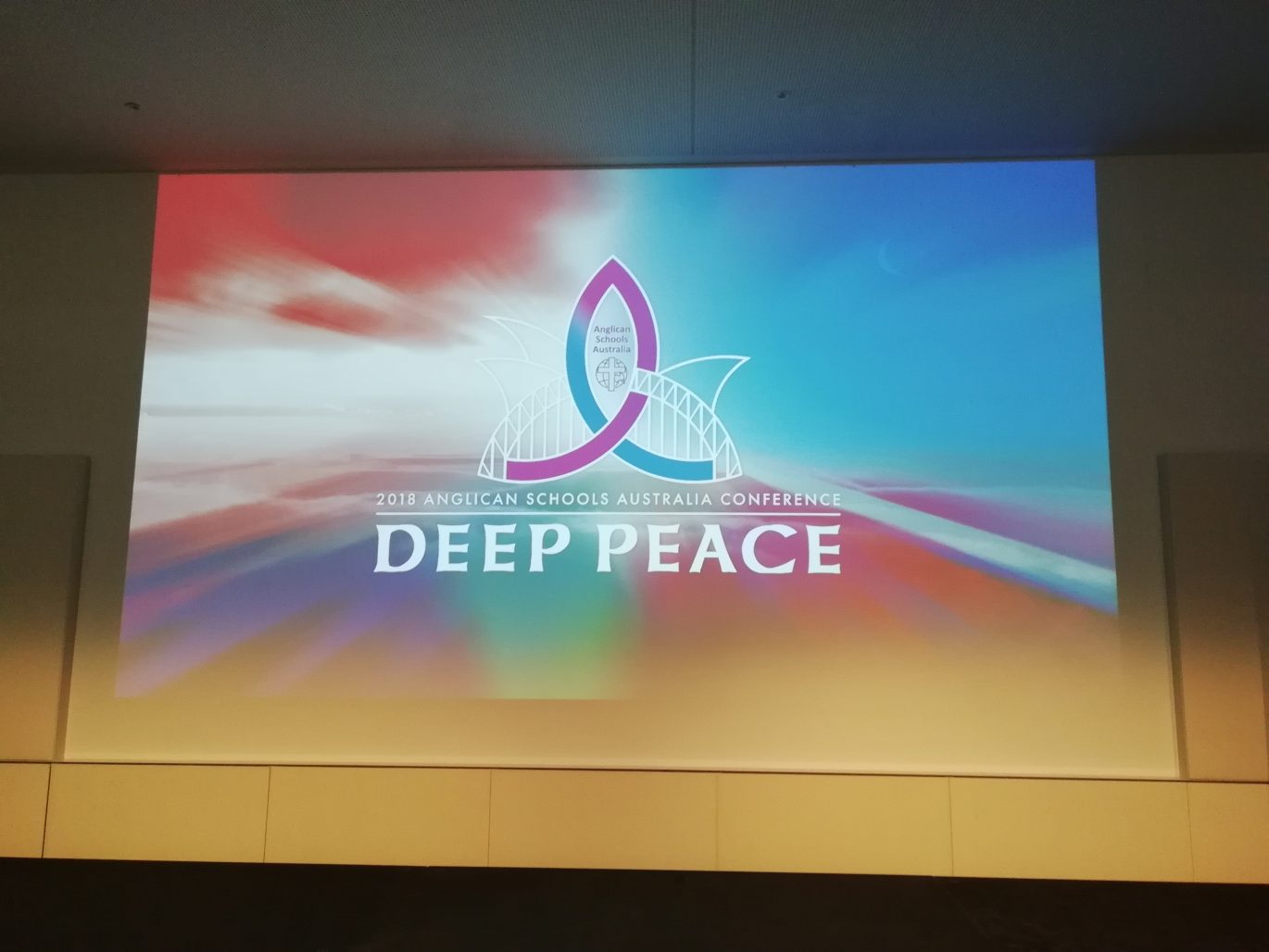
topic and logo of the conference- deep peace
Deep Peace – the Peace of God: What does it look like in our everyday live in Protestant schools? And how can we achieve it? That is what the participants of the conference of the Anglican Schools Australia (ASA) learned, discussed and exchanged about during their two-days annual meeting. Chaplains, principals, teachers and administrative staff from all corners of Australia gathered together at the International Convention Center of Sydney at the beautiful darling harbor. GPENreformation team member Bianca had the chance to attend and to get to know a lot of people responsible in Anglican schools across Australia explaining to them the opportunities the worldwide network of GPENreformation has to offer them.
The conference was characterized by several keynotes intermittent by pauses giving space to exchange about what was just presented. The first keynote speaker, Dr Michael Spencer, Vice-Chancellor & Principal University of Sydney, spoke about the topic of “Universities and disagreeing well”. He pointed out how difficult it is to live in peace with persons having a quite opposite opinion to your own and how the university tries to apply the values of deep respect in its culture among staff and students. He was followed by Dr Kerry Howells from the University of Tasmania who gave the participants an understanding of the very complex and interesting idea of deep gratitude and its role for achieving deep peace. One practical advice for teachers: greet your students well every morning at the beginning of class so that they feel valued.
The afternoon session of the first conference day was then composed of different elements: Another keynote about the education of aboriginal children at boarding schools was followed by a service at the historic Church Hill, the oldest Parish of Australia dating back to 1788. The day ended with a welcome reception at the Museum of Contemporary Art.
Day 2 held two more compelling keynotes ready for the participants. Both speakers came from the Centre for Public Christianity based in Sydney. Dr John Dickson raised the question “Is Christianity a force for peace in the world?” giving a historic overview of Christianity involved in conflict as well as peacemaking. His colleague Natasha Moore on the other hand focused on the importance of freedom of speech for disagreeing well and so live in peace with each other. She highlighted that it is important to surround ourselves not only by like-minded people as we often tend to, but also to confront ourselves with people having other worldviews and through that to learn to speak truth with humility. The day ended with a one-hour world café where all participants had the chance to learn about various projects in practice at Anglican schools around Australia.
In the end, all participants expressed their gratitude for this interesting conference rich of ideas and thoughts about deep peace and were looking forward to the next one taking place in Hobart, Tasmania (Australia), in 2019.
- topic and logo of the conference- deep peace
- opening with student choir
- Speaker Kerry Howells
- view over darling harbor from conference center
- Church Hill
- tables and exhibition part of the conference
- speaker Natasha Moore about freedom of speech
- capture from the discussion topics
- capture from the discussion topics
By Bianca Kappelhoff
